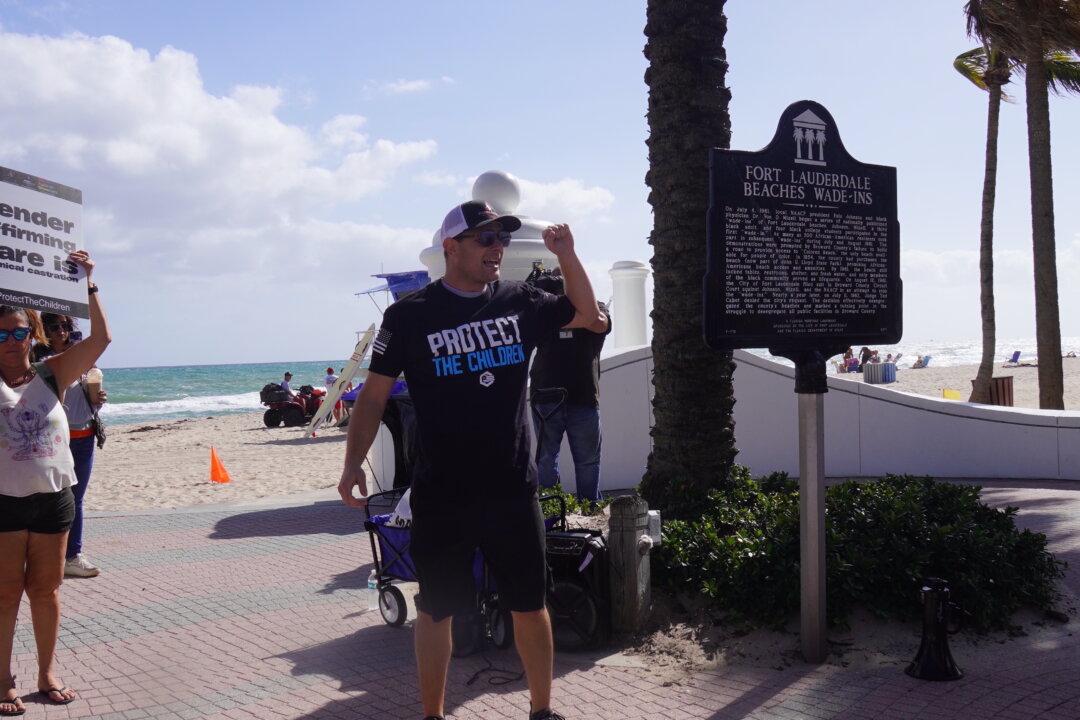PUNTA GORDA, Fla.—Florida Attorney General Ashley Moody on June 20 filed a document asking Leon County Circuit Judge John Cooper to reject a motion by abortion clinics and a doctor to temporarily delay the law prohibiting most abortions after 15 weeks that is set to take effect on July 1.
Judge Cooper will hear arguments on June 27 on the temporary injunction. The case could test Florida’s Constitution privacy clause and establish future abortion rights across the state.
The privacy clause states: “Every natural person has the right to be let alone and free from governmental intrusion into the person’s private life except as otherwise provided herein. This section shall not be construed to limit the public’s right of access to public records and meetings as provided by law.”“At a minimum, the state’s interest is compelling in situations where the effect of HB 5 (the new law) is to encourage women to schedule their abortions earlier and results in a less dangerous medical procedure,“ the state’s filing said. ”As to protecting children in utero, the state defendants’ experts will show that a 15-week-old child is a distinct living being who is conscious and experiences pain.”
The plaintiffs, however, chose to focus on a 30-year-old Florida Supreme Court decision that has protected abortion rights based on the privacy clause in the state Constitution.
“Plaintiffs have a substantial likelihood of success on the merits because HB 5 is unconstitutional on its face,” the motion for temporary injunction filed by the plaintiffs on June 1 said. “Simply put, the right to privacy enshrined in the Florida Constitution protects the right to obtain an abortion before fetal viability, and the act (HB 5) contravenes that right by banning abortion months before viability.”
The Republican-controlled legislative session that ended in March passed HB 5, and it was signed by Gov. Ron DeSantis in April. The new law closely mirrors the Mississippi law that the U.S. Supreme Court is now considering. A leaked draft opinion written by Justice Samuel Alito suggests the court could overturn the 1973 Roe V. Wade decision, sending the abortion issue back to the states.
In response to the new Florida law, several abortion clinics and a doctor filed suit on June 1 in Leon County circuit court. The lawsuit claims that the new law does not include exceptions for rape or incest. It allows abortions after 15 weeks if needed to save the life of the mother. The 15-week window dates from the woman’s last menstrual period.
In addition to citing the privacy clause, the plaintiffs also argued that preventing abortions after the 15-week window could “endanger the woman’s health by requiring them to give birth.”
“... the Florida Supreme Court has held repeatedly that the right to terminate a pregnancy is not just covered, but central among those liberties guaranteed by the privacy clause,” the motion read.
With a more conservative Florida Supreme Court in place, it has in the past shown a willingness to toss out court precedents, leaving the privacy clause up for grabs.
Moody’s office raised several arguments to convince Cooper to reject a temporary injunction. The plaintiffs “don’t have legal standing and would not suffer irreparable harm” from the law, according to the attorney general’s filing. State’s attorneys argued that the vast majority of abortions are performed before the 15-week window and cited that almost 80,000 abortions were performed in Florida in 2021, with nearly 75,000 performed in the first trimester of pregnancy.
In the filing, the state’s lawyers quoted legal precedent, “In other words, for most women seeking an abortion, HB 5 will have no effect at all, much less cause a ’significant restriction.'”




